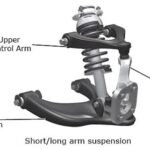Getting a new or used car often requires financing. Bank Car Loans are a common way to borrow the money you need. Understanding how they work, the different types available, and how to find the best rates can save you money and make the car buying process smoother. This guide will provide you with essential information about bank car loans.
Types of Bank Car Loans
There are several types of bank car loans to choose from:
-
New Car Loans: These loans are designed specifically for purchasing brand new vehicles from dealerships. They often come with lower interest rates compared to used car loans.
-
Used Car Loans: These are for buying pre-owned vehicles, either from a dealership or a private seller. Interest rates for used car loans are usually higher than new car loan rates.
-
Lease Buyout Loans: If you’re leasing a car and decide you want to keep it at the end of your lease term, a lease buyout loan allows you to finance the purchase of the vehicle.
-
Refinance Auto Loans: Refinancing involves replacing your existing auto loan with a new one, potentially with a lower interest rate or better terms, ultimately saving you money.
Finding the Best Bank Car Loan Rates
Securing a favorable interest rate on your car loan is crucial to minimizing your overall cost. Here’s how to find the best rates:
-
Shop Around: Compare rates from different banks and credit unions. Don’t settle for the first offer you receive. Online comparison tools can streamline this process.
-
Check Your Credit Score: Your credit history plays a significant role in determining the interest rate you qualify for. A higher credit score often leads to lower rates. Obtain a free credit report to understand your standing.
-
Consider a Shorter Loan Term: While shorter loan terms result in higher monthly payments, you’ll pay less interest over the life of the loan.
-
Negotiate: Don’t be afraid to negotiate with lenders to see if they can offer a better rate or terms.
Applying for a Bank Car Loan
When you’re ready to apply, be prepared to provide the following information:
-
Personal Information: Name, address, social security number, and employment history.
-
Income Verification: Pay stubs, tax returns, or other documents to prove your income.
-
Vehicle Information: Make, model, year, and VIN of the car you want to purchase.
-
Down Payment: The amount of money you’ll be paying upfront towards the purchase price. A larger down payment can help you qualify for a lower interest rate.
Managing Your Bank Car Loan
Once you have your loan, make your payments on time to avoid late fees and damage to your credit score. Consider setting up automatic payments to ensure timely payments. Also, review your loan agreement periodically to understand the terms and conditions.
Conclusion
Bank car loans can make buying a car achievable. By understanding the various loan types, shopping for the best rates, and managing your loan responsibly, you can drive away in your new vehicle with confidence and financial peace of mind. Be sure to research and compare different lenders to find the best loan for your individual needs and budget. Remember to factor in additional costs like insurance, maintenance, and potential repairs.

